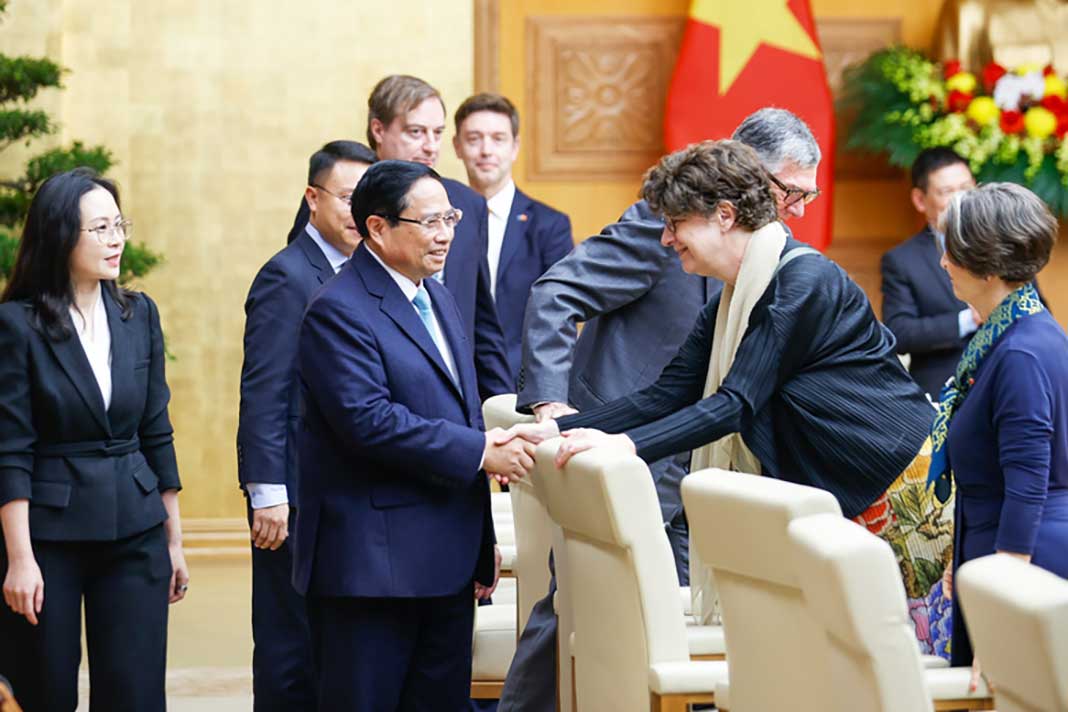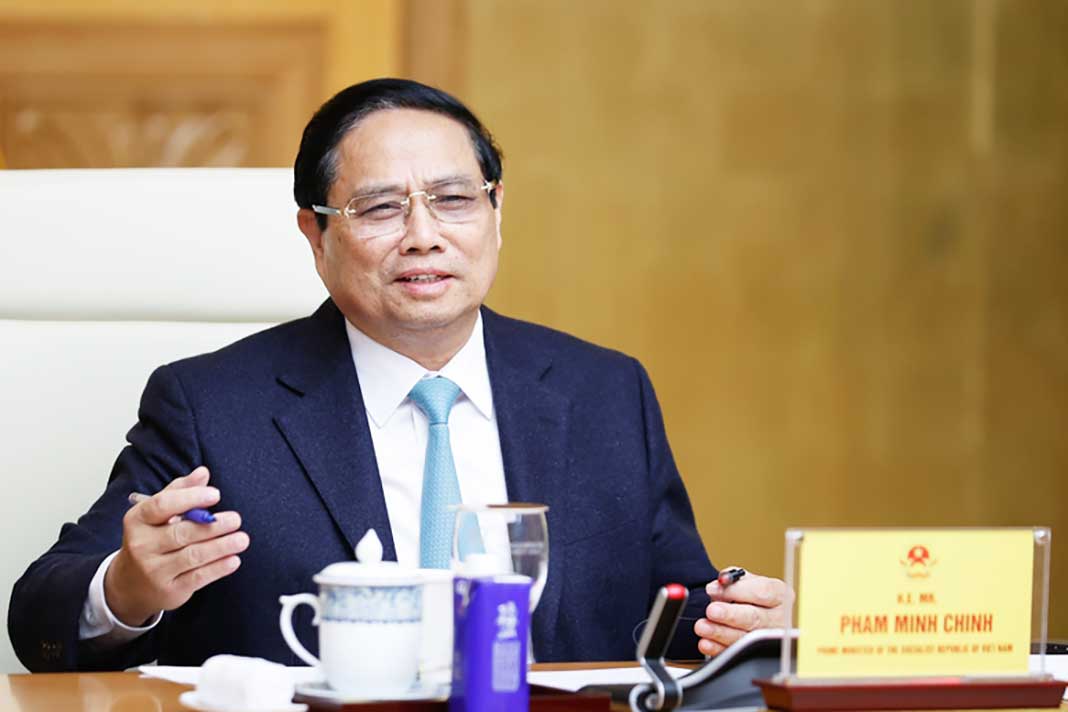HCMC — Vietnam will build and develop itself into a major economic, trade, and investment hub in Southeast Asia by 2030, Prime Minister Pham Minh Chinh announced on Sunday.
Speaking at a roundtable with 16 leading European corporations in Hanoi on March 2, the prime minister outlined ambitious goals, including achieving GDP growth of 8% or higher this year and reaching double-digit growth in the coming years, as part of a broader vision to transform Vietnam into a high-income developed nation by 2045.
“Vietnam will establish itself as a key economic, trade, and investment center in Southeast Asia from now until 2030,” Chinh said, emphasizing the Government’s commitment to improving the country’s investment and business environment.
He cited recent upgrades by global organizations, including improved competitiveness rankings, a “stable” credit rating, and a 15-notch rise in Vietnam’s e-government development index. The country’s economic freedom index surged by 13 places, while its global innovation and sustainable development rankings climbed by two and one spots, respectively.
“Many foreign investors have chosen Vietnam as a strategic manufacturing hub, linking it to global supply chains,” Chinh noted.

This year marks the 35th anniversary of diplomatic ties between the European Union and Vietnam. The EU is Vietnam’s fourth-largest trading partner and fifth-largest investor, having poured over US$30 billion into the country. It is also a leading provider of official development assistance (ODA), with 210 million euros allocated for 2021-2024. Bilateral trade reached US$68 billion in 2024, a 16% increase against the previous year.
Julien Guerrier, the EU Ambassador to Vietnam, said European companies are confident in Vietnam’s potential.
He praised the Vietnamese Government’s recent reforms as “extremely resolute and impressive” and that these efforts have established a clearer legal framework and practical solutions to adapt to changing circumstances.
A survey by the European Chamber of Commerce in Vietnam (EuroCham) found that 75% of EU businesses recommend Vietnam as an investment destination.
The prime minister called for stronger business ties, encouraging the EU to facilitate greater Vietnamese participation in global supply chains and establish Vietnam as a “long-term production and investment foothold for EU companies in the region.”
He also asked European businesses to advocate for the remaining nine EU member states to ratify the EU-Vietnam Investment Protection Agreement (EVIPA), urge the European Commission to lift the “yellow card” on Vietnam’s seafood exports due to illegal, unreported, and unregulated (IUU) fishing concerns, and maintain ODA support.









